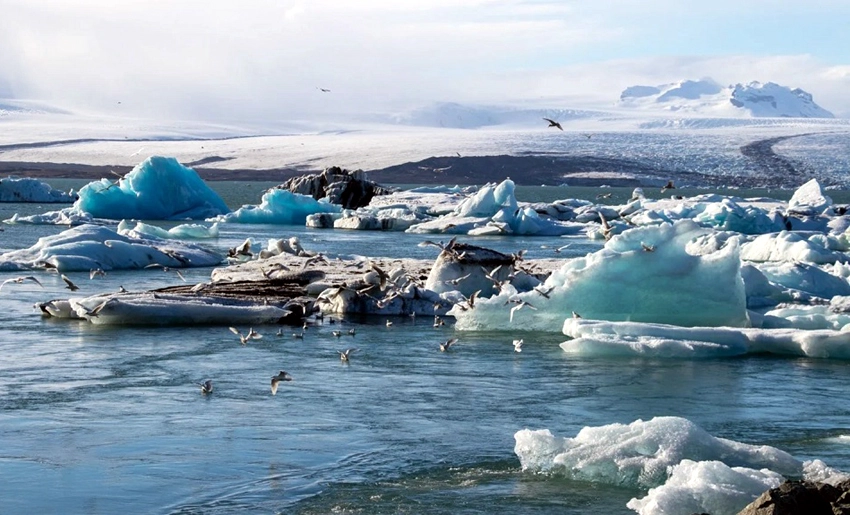With a call to conserve glaciers, large deposits of ice that store 70 percent of the planet’s fresh wáter. Humanity celebrates World Water Day today.
On this date, declared in 1993 by the United Nations General Assembly. A tribute is paid to this resource, while raising awareness among the population about the 2.2 billion people who live without access to safely managed drinking water.
Gaps in access to water supply and sanitation sources, population growth, intensive use of this vital liquid, greater variability in rainfall and pollution. Are factors that combine in many cases, transforming water into one of the main risks for economic progress. Poverty eradication and sustainable development.
Climate change manifests itself through water: nine out of 10 natural disasters are related to this resource.
In addition, it is a vital factor for production, so the reduction in its stocks can translate into a slowdown in economic growth.
Glaciers have been melting since the 19th century:
This year the theme chosen is “Conservation of glaciers”. Understood as a large accumulation of ice and snow. Mainly, that originates in the land and flows slowly due to the influence of its own weight.
They are found on all continents and exist in many mountainous regions. Around the edges of the Greenland and Antarctic ice sheets, with more than 275,000 in the world. Covering an area of 700,000 square kilometers.
According to experts, due to climate change, which has been driven essentially by human activities since the 19th century. Glaciers are melting rapidly, which is a pressing concern.
More than two billion people, including many indigenous peoples. Depend on melting glaciers and snow for fresh wáter. Including their food security, livelihoods, and cultural and domestic needs.
The continued decline of glaciers contributes significantly to the global rise in sea level. Which is currently about 20 centimeters higher than in 1900. Moreover posing risks to the water resources of communities near and far from the glaciers, as well as to coastal populations.
These changes also have global economic repercussions affecting many sectors. Including agriculture, hydropower, tourism, trade and transport.
Glacier conservation
The preservation of glaciers is essential for environmental sustainability. Economic stability and the safeguarding of cultural services and livelihoods.
Hence, specialists emphasize the need to take immediate and ambitious measures to reduce greenhouse gas concentrations. In order to stabilize the climate, preserve glaciers and ensure a sustainable future for all.
Complementing indigenous peoples’ knowledge with other Earth observations. Data and scientific knowledge can provide a comprehensive. Inclusive and sound basis for policies and decisions on response measures.
In the case of glacial areas, these should include the establishment of protected áreas. Sustainable land use practices, the implementation of integrated water resources management. And finally with the development of warning systems to address increased cryospheric risks.
With information from Prensa Latina
Translated by Radio Angulo
- Installation of Photovoltaic Systems in Rural Communities in Holguin - 19 de January de 2026
- 39th City Salon Opens in Holguin - 19 de January de 2026
- Habanos Festival Among Cuba’s Most Important Tourism Events - 19 de January de 2026

